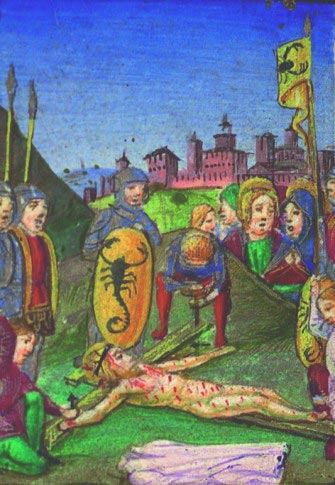 |
| Source: Bartlesville (Okla.) Examiner-Enterprise |
During the last week, we heard the news of the passing of Tom White, the executive director of Voice of the Martyrs, a Bartlesville, Okla.-based group that serves to help and raise awareness of the persecuted church. White was 64 years old.
What's particularly troubling about the death of the man who had led VOM for the last 20 years are the circumstances surrounding it. According to news reports, Bartlesville police had begun an investigation into allegations that White, who led VOM following his own release from a Cuban prison for distributing the Bible and other Christian literature there, had molested a young girl. White was reported missing Tuesday night and found Wednesday morning in a warehouse at VOM's headquarters. A statement released by VOM on Friday stated that "rather than face those allegations, and all of the resulting fallout for his family and this ministry and himself, Tom appears to have chosen to take his own life."
This is tragic, to say the least. The biting comments and slander from people came fast and furious on the story on the website of KOTV-TV6 in Tulsa, which reported the story, slamming him for being a pedophile. They would be correct, assuming the charges are true. We'll never really know now because of White's death.
But how to respond to such a tragedy?
Christianity Today had a great editorial on this they released on their website late Friday night. Citing other cases where Christian leaders were accused of these horrible crimes (some later admitting to them), it said the Christian church should first and foremost take measures to protect the innocent among them. It cited background checks for youth workers, something many Catholic churches have done in light of molestation scandals involving priests. It also said there was a need for parents to take the steps necessary to protect their children, helping them identify what is inappropriate behavior.
Also, and this is a more unpopular move, Christianity Today's editorial suggested Christians need to extend the gospel of Christ to child sex abusers. While that does not mean allowing convicted child sex abusers to work in youth ministry or to be fully integrated in church life, it does mean working to restore them to a place where they can experience the forgiveness of Jesus Christ.
Certainly, convicted child sex abusers need to be punished with jail time, and to receive the therapy and counseling they need to make a full recovery and to fully repent. But, much like the murderer, the thief, and the rest of us, God's grace needs to be made new and for their victims to be made new by God's power and divine grace, the editorial said.
"'Christ died for the murderer and the thief—did he not also die for the child molester?' asks William Struthers, a neuroscientist at Wheaton (Ill.) College in Christianity Today's editorial. 'Or am I going to create categories of people who are no longer able to be saved by the blood of Christ?'"









